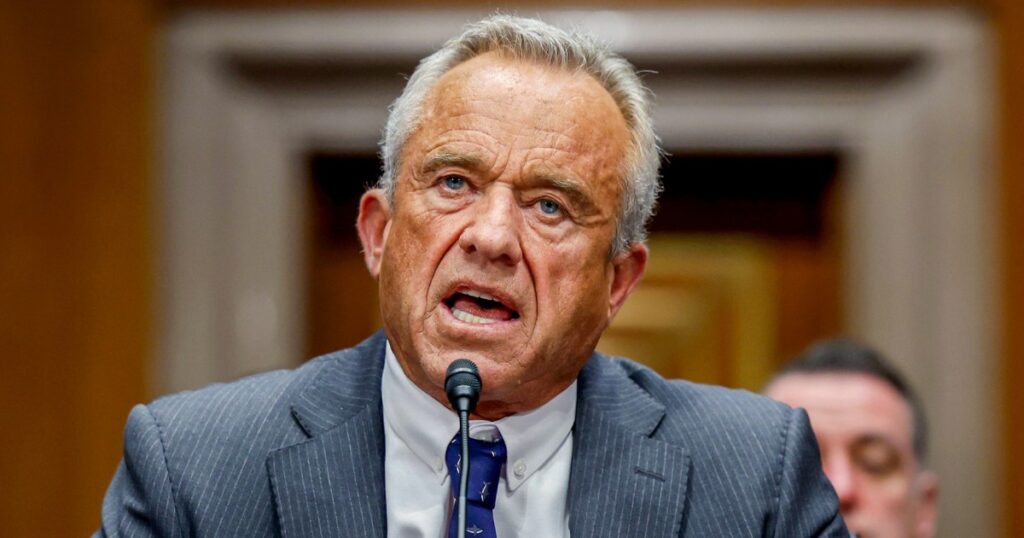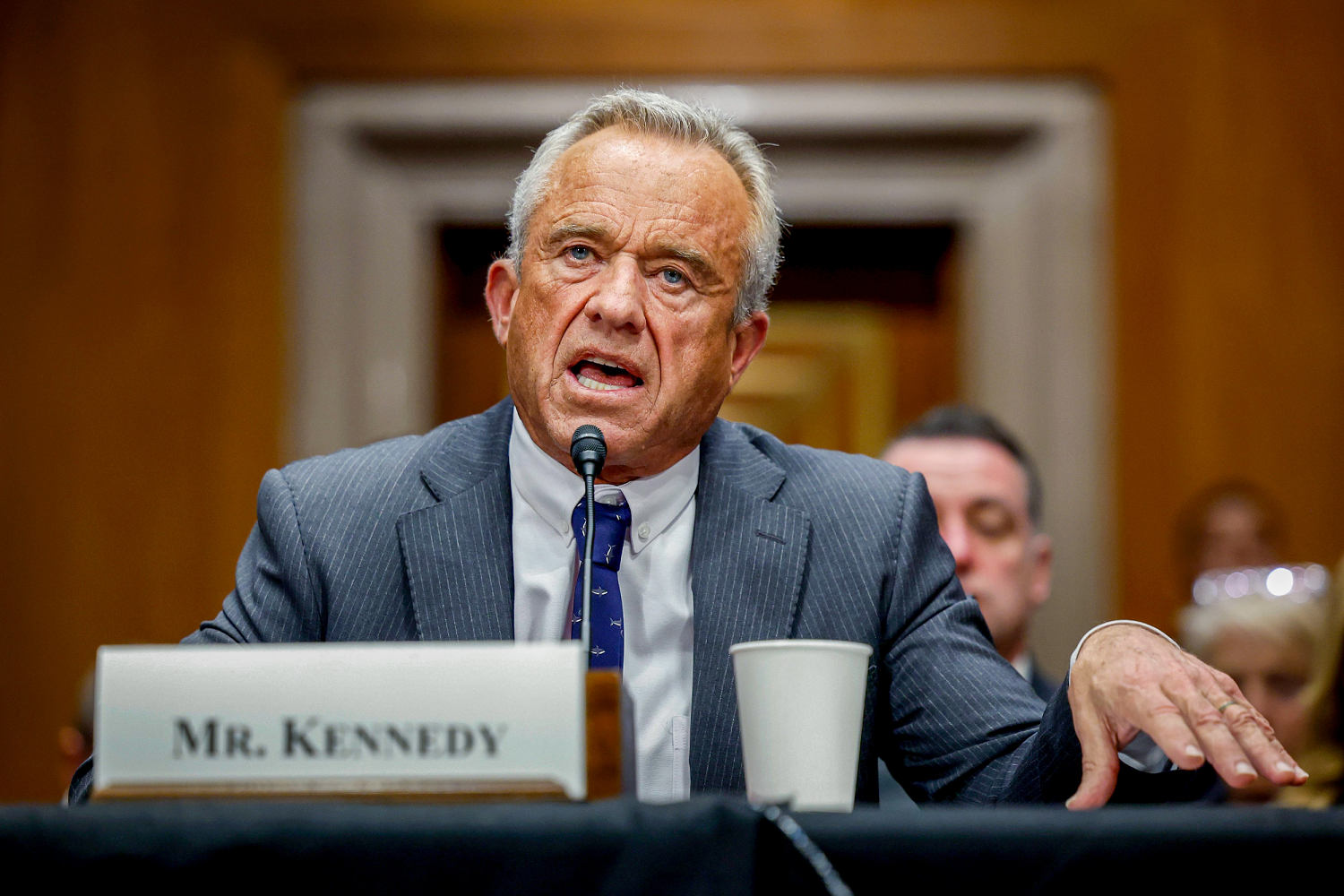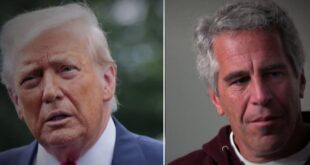

Robert F. Kennedy Jr. made clear in testimony before the Senate this week that if confirmed as Health and Human Services secretary, his focus would be on chronic diseases over infectious ones.
“We’ve devoted all of these dollars to infectious disease and to drug development and very little to chronic disease,” Kennedy said Thursday before the Senate Committee on Health, Education, Labor and Pensions.
Kennedy described himself as uniquely positioned to “end the chronic disease epidemic” in the United States, which he blamed for high health care costs. His opening statements mentioned rising rates of diabetes, cancer, asthma and obesity as issues that should be prioritized, along with chronic disease rates among children. (Although Kennedy stated that 66% of kids have a chronic condition, data from the National Survey of Children’s Health suggests it’s around 40%.)
In testimony before two Senate committees this week, Kennedy faced questions about his history of anti-vaccine rhetoric, promotion of conspiracy theories and shifting views on abortion. He was met with fierce opposition from some Democratic senators, as well as reservations from the chair of the health committee, Sen. Bill Cassidy, R-La., who is a doctor.
If confirmed, Kennedy would oversee a $1.7 trillion annual budget and 13 agencies, including the National Institutes of Health and the Centers for Disease Control and Prevention. Prior to the hearings, Kennedy had suggested taking an eight-year break from researching infectious diseases like Covid and measles.
In his statements to senators, Kennedy claimed that infectious diseases receive significantly more federal funding than chronic diseases. But government records suggest the opposite: Infectious diseases ranked ninth on the list of research subjects funded by the NIH last year, receiving $8.1 billion.
Compare that to a single chronic disease — cancer — that received nearly the same amount of funding in 2024. Brain disorders received $8.9 billion.
Many of the other diseases Kennedy named also receive billions in federal funding, including Alzheimer’s ($3.9 billion), diabetes ($1.2 billion), and cardiovascular diseases ($2.9 billion).
When it comes to autism — a chronic disease that Kennedy has falsely linked to vaccines, a stance he did not disavow in the hearings — federal funding has grown for more than a decade according to Statista, a data information group. NIH funding for autism research amounted to $305 million in 2024, the group found, compared with $169 million in 2011.
Researchers have attributed much of the increase in autism rates to greater awareness and advances in diagnostic capabilities. Much of the risk of developing autism is genetic, though parents having kids later in life and environmental factors like air pollution may also play a role.
Kennedy is correct that other chronic diseases are becoming more prevalent, as well. Diagnoses of prostate and pancreatic cancer are rising, as is colorectal cancer in men and women younger than age 65. The prevalence of Type 2 diabetes also rose 19% from 2012 to 2022.
Joel Kaufman, a physician-epidemiologist at the University of Washington, said increases in certain chronic diseases could have to do with improvements in the prevention and treatment of infectious disease, which has in turn allowed people to survive what could otherwise have been fatal illnesses and live longer.
“What causes most disease and disability now has transitioned in wealthy economies across the world from communicable infectious diseases to chronic diseases,” he said. “Part of that is just the success that we’ve had in managing infectious diseases.”
Neither the NIH or the CDC — two major federal funders of chronic and infectious disease research — provided comment in response to Kennedy’s assertions. The American Heart Association and the American Diabetes Association, the leading research groups for two of the most common chronic diseases in the U.S., also declined to comment.
In several of his responses to senators, Kennedy said he believes that research into the etiology, or root causes and origins, of chronic diseases is particularly lacking. Kennedy has a long-standing interest in possible connections between environmental toxins and human health.
“There’s almost nothing at NIH, very, very little, a low percentage of its budget, a $42 billion budget, that is devoted to finding out why we’re having this obesity epidemic. We know it’s an environmental toxin,” Kennedy said, adding: “Why aren’t we devoting science to finding out what those toxins are and then eliminating them?”
Obesity research received around $1.2 billion in NIH funding last year. Known risk factors for obesity include a lack of exercise, diets high in ultraprocessed foods and a person’s genetics, though researchers increasingly suspect that exposure to certain chemicals like BPA and PFAS may play a role.
Two epidemiologists agreed that research into the root causes of chronic diseases often receives less funding than studies on potential treatments. Even within the field of prevention research, studying environmental risk factors isn’t as popular as studying genetics or lifestyle interventions, said Dr. Beate Ritz, an epidemiology professor at the University of California, Los Angeles Fielding School of Public Health.
In particular, she said, chronic disease research could benefit from more studies on the effects of microplastics, flame retardants, pesticides and PFAS.
“Chemicals that can be found in the food, in the air and in the water, they really need to be studied much more, because we know so little about what the chronic, low-dose effects are,” Ritz said.
However, experts also said Kennedy’s notion that infectious disease research is funded at the expense of chronic disease is a false dichotomy. Many chronic diseases sprout from viral or bacterial infections, so clamping down on the research into the latter could make it harder to better understand the former.
“The evidence is mounting, for many of the chronic conditions, that there is an infectious etiology,” said Garth Ehrlich, a professor of microbiology and immunology at Drexel University College of Medicine in Philadelphia. “To me, chronic disease and infectious disease almost go hand in hand.”
Recent research has suggested that multiple sclerosis, a chronic neurologic condition, may be caused by the Epstein-Barr virus. Parkinson’s disease, meanwhile, has been linked to infection with hepatitis C and a type of bacteria called H. pylori. And up to 30% of cancers, like cervical cancer, are driven by microbes or viruses.
“We learn more and more that these bugs that don’t kill us have chronic effects,” Ritz said.
Kennedy has frequently questioned the safety of human papillomavirus (HPV) vaccines, which reduce the risk of cervical cancer, despite overwhelming evidence that they’re safe. His former law firm is suing the pharmaceutical company Merck, alleging that it failed to warn consumers about HPV vaccine side effects. In ethics filings, Kennedy indicated that he planned to continue collecting fees from those lawsuits, but on Friday, he said he would divest those proceeds to his son.
Kennedy also voiced support on Thursday for research into Lyme disease, another potentially lifelong illness that begins with an infection — in this case, from bacteria carried by ticks. The subject of Lyme disease arose multiple times during the hearings, given Kennedy’s previous suggestion on a podcast that it was a military bioweapon. Kennedy attempted to distance himself from that statement, telling Sen. Susan Collins, R-Maine, on Thursday that he would support research into a vaccine.
“I’ve had Lyme disease,” Kennedy said, adding: “There’s nobody who will fight harder to find a vaccine or a treatment for Lyme disease than me.”
 Latest World Breaking News Online News Portal
Latest World Breaking News Online News Portal






